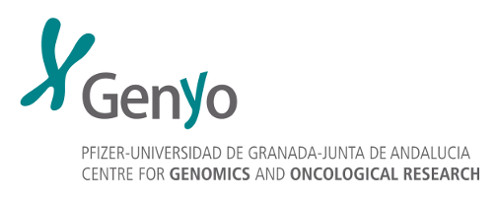What do we do?
We study epigenetic memory during development, aging and cancer.
We are a multidisciplinary group led by Dr. David Landeira and affiliated to the Department of Biochemistry and Molecular Biology II at University of Granada. Our lab is based at the Centre for Genomics and Oncological Research (GENYO) that is co-funded by Pfizer, University of Granada and the Andalusian Regional Government.
The Landeira lab is driven by the belief that many aspects of human health are not genetically predetermined. We hypothesize that the onset of aging-associated diseases is partly a consequence of the deterioration of the cellular epigenetic memory, eventually leading to changes in cell identity and the onset of aging-associated diseases including cancer. We are currently developing different research lines to contribute to establish the molecular foundation of epigenetic memory, to identify which are the key epigenetic pathways that drive aging and cancer progression, and to develop new therapies that reverse aging-associated diseases.

Figure 1. Scheme summarizing the general research interest of the Landeira lab in epigenetics during development and in human disease.











